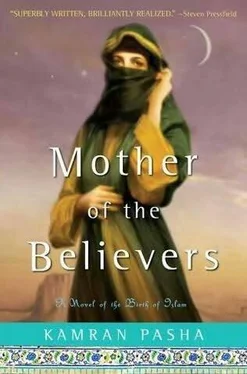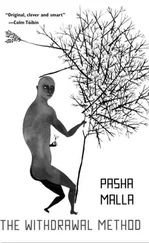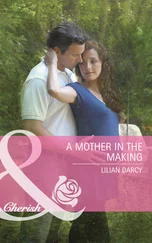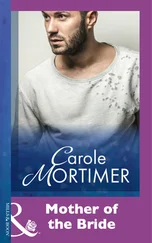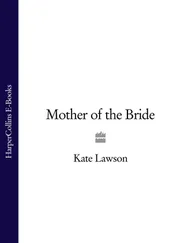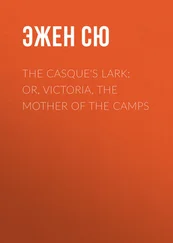Along with the ritual encircling of the temple, the Muslims retained the practice of running seven times between the hills of Safa and Marwa. This rite, whose meaning had long been forgotten by the Arabs, commemorated our mother Hagar and her desperate search for water. She had sought to save her dying son Ishmael, and at her moment of despair in the arid valley, God had caused the well of Zamzam to miraculously appear at Ishmael’s foot. As my husband explained the meaning of the ritual to the masses of pilgrims, many of whom were recent converts, I remembered how I had told Abu Sufyan the same story when I was a little girl almost fifteen years before. Abu Sufyan, who had then been the proud king of the idol worshipers, the same man who now stood humbly dressed in a pilgrim’s loincloth near the Prophet, a follower instead of an enemy.
The next day, the Prophet had led his followers through another ancient rite, the stoning of three old pillars in the desert that had stood since time immemorial. The ritual was meant to commemorate the three times that Abraham was tempted by Satan and how he had driven away the devil by stoning him in the desert.
And then, finally, the Messenger led the throngs out into the vast desert plain of Arafat toward the mountain from which he would deliver what would prove to be his final sermon to mankind. I gazed down at the thousands who had come to hear him speak, the crowd stretching from horizon to horizon, and I had a persistent thought that what I was seeing was a small precursor of the awe of the Day of Judgment, when mankind will rise from their graves and stand side by side before the Throne of God.
As I looked upon the sea of white-garbed pilgrims, all dressed in equal humility regardless of wealth or status, with fair-skinned and dark-skinned believers praying side by side to the same God, I was struck by my husband’s remarkable triumph. He had taken a group of fiercely divided tribes, at war with one another for centuries, and had forged them into a single nation. A community that valued moral character over material success, an Ummah in which the rich eagerly sought to alleviate the suffering of the poor. Such a feat could not have been accomplished by a thousand great leaders over a thousand generations. And yet my love had done it single-handedly over the course of one lifetime.
As the Messenger stood atop the ancient mountain of Arafat, I heard his voice echo to the thousands who eagerly stood under the punishing sun to hear his words.
“O people, hear me well as I speak to you, for we may not meet again in this place after this year. O people! Your lives and your property are as sanctified to each other as the sanctity of this day, and this sacred month. Have I given the message? O God, be my witness.”
At his words, the Pilgrims cried out in unison, “Yes!”
The Prophet raised his hand and continued.
“So let whoever has been given something for safekeeping give it back to him who gave him it. Truly, the usury of the Era of Ignorance has been laid aside forever. And truly, the blood vengeance of the Era of Ignorance has been laid aside forever. Truly, the hereditary distinctions that were the pretense of the Era of Ignorance have been laid aside forever.”
He paused and then laid out his final commandments for the people, even as Moses had done at Sinai.
“O people: truly you owe your women their rights, and they owe you yours. They may not lie with other men in your beds, let anyone into your houses you do not want without your permission, or commit indecency. You in turn must provide for them and clothe them fittingly. So fear God in respect to women, and concern yourselves with their welfare. Have I given the message? O God, be my witness.”
The crowds cried in assent again, their voices thundering through the valley with such power that I could feel the earth beneath me tremble.
“O people, believers are but brothers. Your Lord is One, and your father is one. All of you are from Adam, and Adam was from the mud of the earth. The noblest of you in God’s sight is the best in conduct. An Arab has no merit over a non-Arab, nor a white man over a black man, other than in his moral conduct. Have I given the message? O God, be my witness!”
As the crowd shouted again its agreement, I saw a strange light surrounding the Messenger, like a circle of fire. I told myself it was just the punishing desert sun playing tricks on me. And yet the light persisted and grew gradually brighter.
“Today I received these words from God, which the angel Gabriel has told me will be the final Revelation from the Lord of the Worlds.”
There was stunned silence and everyone listened carefully as the Prophet recited in his beautiful flowing voice the Word of God.
Today the disbelievers have lost all hope that you will give up your faith.
Do not fear them, but fear Me.
Today I have perfected your religion for you
Completed my blessing upon you
And chosen for your religion Islam-the Surrender.
We all stood there in awe as God’s final words to mankind sank into our hearts. And then the Prophet raised his voice and asked the question one last time.
“Have I given the message? O God, be my witness!”
And as the cries of affirmation echoed all around us, I saw tears flowing down my husband’s face. For in that moment, I realized that he had finally completed his life’s work. There was nothing more left to be done.
“Then let whoever is present tell whoever is absent. And peace be upon all of you, and the mercy of Allah.”
Even as he spoke these words, the strange light around him appeared to intensify and for a moment it seemed as if my husband were made of light itself, shining brighter than the sun. I looked down, unable to bear the blinding rays emanating from about his noble figure.
And then I gasped, for my eyes fell on the earth around where he stood. And I could see no sign of a shadow. My father and Umar were right beside him, and their shadowy outlines fell away from them as the sun slid toward the horizon. And yet Muhammad alone among all those who stood at the peak cast no shade.
And then the mysterious light around my husband vanished, and his shadow reappeared against the craggy rocks as if it had always been there. And without another word, the Messenger of God climbed down from the mountain peak and immersed himself in the adoring masses.
AS WE RETURNED TO Medina at the end of the Pilgrimage, two events occurred that would change the course of Muslim history. First was the birth of my half brother Muhammad. My father had taken a second wife in his old age, a war widow named Asma bint Umais, who had become pregnant with his last child. Even though she was late in her term when the season of Pilgrimage had come, my stepmother had insisted upon accompanying my father to Mecca. She had performed all the rituals admirably and without complaint, but soon after we left the precincts of the holy city, her water broke and my baby brother was born.
I fell in love with little Muhammad the moment I saw him, for he had my fiery red hair and adorable dimples on his cheeks whenever he smiled, which was often. In the years to come, Muhammad ibn Abu Bakr would become like a son to me, even as you have been, Abdallah, and it is my greatest regret that I was not able to restrain him or guide him away from the terrible destiny that awaited him.
And though I did not know it then, the man who shared responsibility for my brother’s destiny was among us, and it was because of the events that occurred on that road home from Mecca that their souls would become intertwined.
Our pilgrim caravan stopped for water at a pond located in a small valley called Ghadir Khumm, a barren place of no significance that would later be remembered as the home of the great schism that drove the Muslims apart forever, shattering a unified Ummah into sects that were perennially at war.
Читать дальше
